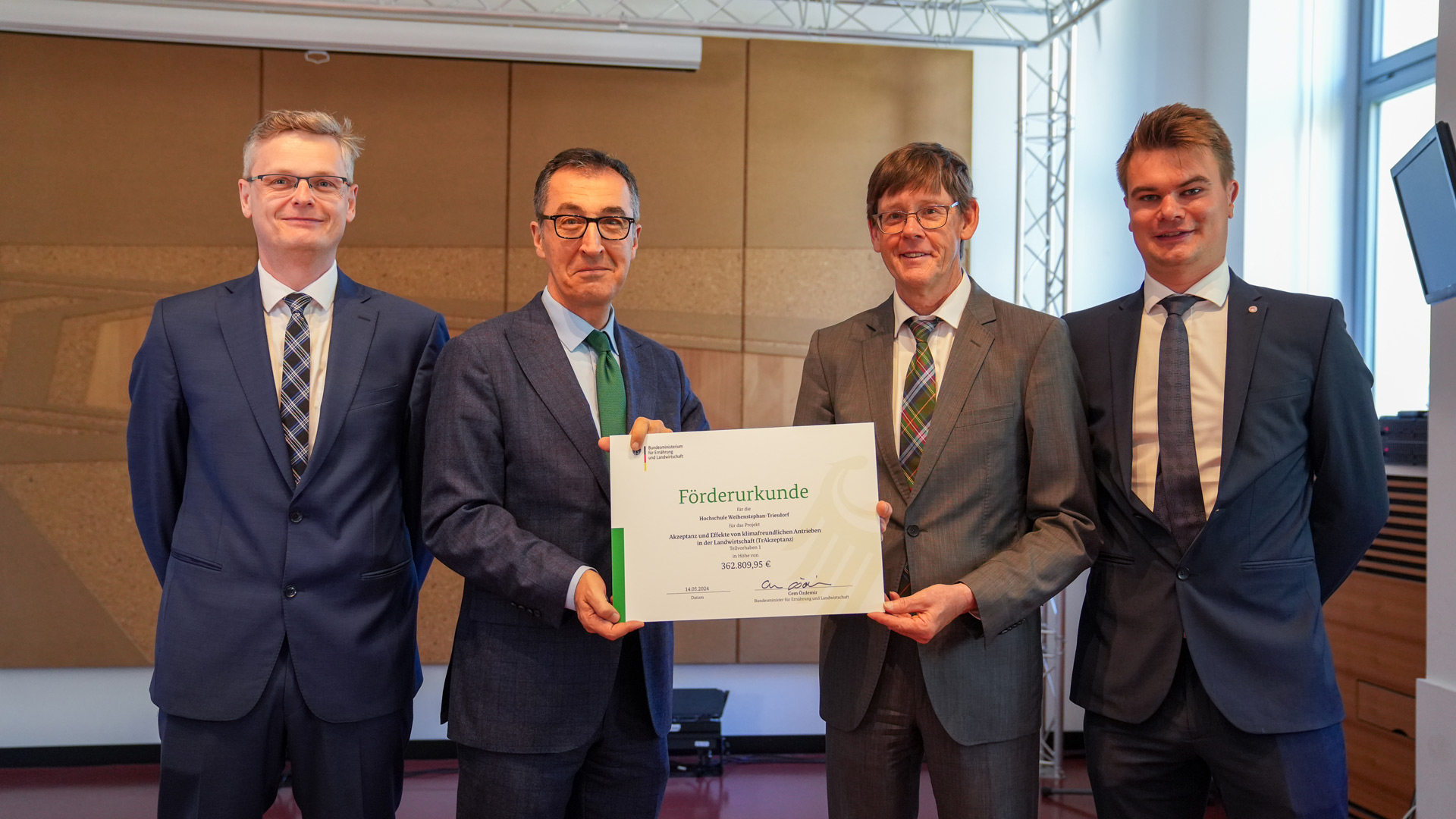"We need answers as to how farms can become more climate-friendly. This transformation will only succeed if the people who are supposed to implement it are also convinced. And, of course, it has to be economically viable. With our support for 'TrAkzeptanz', we are contributing to climate-friendly and economical technologies in the field. And as it should be, all stakeholders are involved in the project," said Federal Minister Özdemir at the presentation of the funding certificate at the Federal Ministry of Food and Agriculture in Berlin.
"In the project, we want to find out which levers are important for this change in order to make the transition process successful," says project coordinator Prof Dr Klaus Menrad, Professor of Marketing and Management of Renewable Resources at the HSWT on the Campus Straubing of the Technical University of Munich (TUMCS). "We are also looking at the willingness of farmers and the agricultural machinery industry to switch to new technologies and the requirements of farmers for such a tractor," says Menrad.
"The research team at the TFZ is investigating the advantages and disadvantages associated with the use of renewable fuels and electric drives in agriculture and which solutions are practical. We are also analysing and balancing greenhouse gases to find out how much they actually contribute to climate protection," says Dr Edgar Remmele, Head of the Renewable Fuels and Materials department, describing the TFZ's work.
In the project network, the BBE forms the interface between research and practice. "As an association, we are closely networked with all stakeholders in agriculture, agricultural technology and renewable mobility. With results forums, workshops and other forms of dialogue, we ensure that all relevant players are involved and that the project results reach the target groups - from politicians to agricultural machinery manufacturers, contractors and farmers," says Bernd Geisen, Managing Director of the BBE.
The project "Acceptance and effects of climate-friendly drives in agriculture (TrAkzeptanz)" started on 1 April 2024 with a duration of 36 months and is funded by the Federal Ministry of Food and Agriculture as part of the research and innovation programme "Climate Protection in Agriculture" via the project management agency Federal Office for Agriculture and Food.
